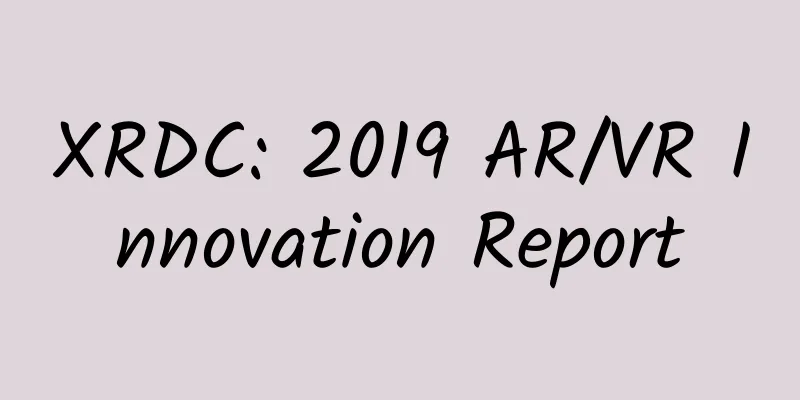XRDC: 2019 AR/VR Innovation Report

|
XRDC released the "2019 AR/VR Innovation Report". Games remain the primary focus of AR/VR/MR development. 59% of respondents said gaming was the most popular, 38% said entertainment (excluding gaming) was the second most popular focus, and 33% said they were focusing on educational programs. Combining some of the possible answers together, we found that 70% of developers are focused on games/entertainment, 37% are working on training/education projects, and 25% of respondents are focused on brand experience. Oculus Rift surpasses HTC Vive as top AR/VR/MR platform, Oculus Quest already generates huge interest When asked which AR/VR/MR platform respondents are currently developing for, 29% chose Oculus Rift, 24% chose Oculus Quest, and 24% chose HTC Vive. A similar split in interest was seen when surveying respondents on what platform their last project was published on, and what platform they were targeting for their next project. 30% of respondents’ last project was for Oculus Rift, 29% of developers’ last project was on HTC Vive, 22% of respondents’ last work was done on an Android phone or tablet via ARCore, and 12% chose Oculus Quest. Looking ahead to their next AR/VR/MR project, 30% of respondents said it will be released on Oculus Rift, 28% on Oculus Quest, and 24% on HTC Vive. Most AR/VR developers don’t care about adapting their work to 2D The majority (52%) said their current projects are designed specifically for AR/VR. 16% of respondents said that their current projects are being developed for both AR/VR and 2D, and only 5% said they are working on a 2D project that will be adapted for AR/VR. Most AR/VR/MR projects are still paid for from company coffers, but customer investment is increasing The most popular source of funding for AR/VR/MR development is the company’s existing funds (41%); funding from one or more customers is the second most popular source (27%). Most developers still don’t see short-term returns This year, 27% of respondents expect their AR/VR/MR projects to be profitable in the medium term, 23% expect long-term profitability, and 11% expect short-term returns. Only 11% of respondents said their projects are currently profitable, down from 14% last year. The PDF version will be shared to the 199IT exchange group. If you want to support our development, please join us! |
<<: Invoca: 85% of customer interactions are handled without a human
Recommend
The latest news on Jilin City express delivery in 2022: When will it return to normal? Can you ship now?
Jilin City has achieved an important phased victor...
6 marketing breakthroughs for billion-dollar brands
In the trillion-dollar new consumer market, why i...
What! Tangshan, a city that mines coal and makes steel, is actually the best in the country in terms of pufferfish farming?!
Pufferfish is a fantastic ingredient that has a p...
Wear a mask! Wear a mask! Important reminder
Recently, the epidemic prevention and control gro...
Lighthouse inheritance | Ye Shuhua, "Mother of Beijing Time": Every star has its own light
Have you heard of "Beijing Time"? Ye Sh...
Chinese home appliances are transforming, while Japanese companies are changing their ways
In recent years, while Chinese home appliance com...
What to do with too much carbon dioxide? Bury it underground!
As an active participant in global climate govern...
Tmall 618 Shopping Festival promotion activities to make huge profits
Tmall 618 Shopping Festival promotion activities,...
AnySDK is available across the board, allowing you to focus on development without worrying about other things
China Joy 2015 came as scheduled, and AnySDK made...
How to check which creative idea is good in Baidu bidding?
(1). Whether the idea is good or not depends main...
Analyze the product logic behind NetEase Yanxuan!
NetEase Yanxuan is an e-commerce platform promote...
CATL surges 44% after listing! Highest valuation exceeds 200 billion (Top 10 highlights)
Another "unicorn" is here! Following th...
The fierce beast that makes you adorable must be me!
When it comes to the cutest animal, most people’s...
With TV games flooding the market, Huanzhong Technology's "Fibble" had over a thousand downloads on its first day of release?
The advent of the OTT era has provided an opportu...









